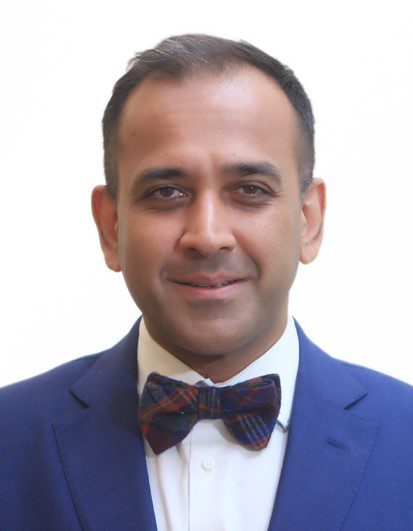Event summary
Hosted by DiploFoundation in partnership with Swissnex in San Francisco and République et Canton de Genève, the session tilted Technology and Diplomacy: The Rise of multilateralism in the Bay Area & lessons for the Geneva Ecosystem aimed to share key findings and lessons learned from DiploFoundation’s recent research on the practice of tech diplomacy in the San Francisco Bay Area. Furthermore, the session delved into the involvement of tech companies and NGOs in tech diplomacy initiatives, and expanded its scope beyond the Bay Area to encompass tech diplomacy approaches of Singapore, South Africa, and the Dominican Republic.
Key points
- Governments engage in tech diplomacy in the Bay Area through consulates, tech envoys, global digital ambassadors, and more. Tech diplomats are non-traditional diplomats that tend to have greater autonomy in determining their priorities and objectives.
- Engaging in tech diplomacy provides significant value to both governments and the private sector, particularly in terms of anticipating future development.
- Discussions on tech diplomacy in the Bay Area lack the representation of the Global South perspective, with limited data on African countries and small developing nations.
- Tech diplomacy in the Bay Area is evolving due to the increasing influence of geopolitical considerations. The creation of safe spaces that promote trust and mutual understanding are key to the practice of tech diplomacy.
- Geneva has the potential to contribute to the tech agenda by broadening the mindset of Silicon Valley stakeholders and exposing them to broader issues. It can also serve as a safe space for discussing tech-related politics due to its neutrality and willingness to be a universal and welcoming place for all.
- Efforts must be made to establish a common language that bridges the gap in understanding between diplomats and individuals in the tech industry.
- The perception of tech diplomacy has evolved, shifting the focus towards fostering high-quality dialogue that transcends the language barriers inherent in science and technology fields.The concept of pre-diplomacy, which involves creating safe spaces for discussions without a set agenda, is essential.
Speaker statements
The panel consisted of eight experts with diverse backgrounds, including government representatives and professionals working in the private sector and NGOs. Each speaker was invited to share their perspective on tech diplomacy and its relevance in the current global climate. The following section summarises their main points.
Ms Pavlina Ittelson, Executive Director, Diplo US: Practising tech diplomacy is valuable to both the government and the private sector, specifically in terms of anticipating the factors that must be taken into consideration when pursuing foreign policy. Most tech-diplomacy practitioners in the Bay Area come from the Global North, with no representation of African countries and very little input from small developing countries.
Mr Yannick Heiniger, Swissnex, San Francisco: The context in which tech diplomacy is performed in the Bay Area is evolving due to the increasing influence of geopolitical considerations. The future of tech diplomacy relies on embracing new methods of collaboration with other governments, establishing safe spaces that enable informal engagement and trust, and adopting an anticipatory mindset. Geneva has significant potential in broadening the mindset in the Bay Area, enhancing market awareness for its stakeholders by exposing them to broader issues and agendas.
Ms Beatrice Ferrari, Director of International Affairs, Canton of Geneva: As a non-diplomatic entity, the Canton of Geneva is interested in understanding the context and conversations between the Bay Area and Geneva, and identifying the stakeholders involved. The conversation relative to tech diplomacy has shifted from primarily focusing on innovation and trade to addressing more substantial issues such as democracy, ethics, and human rights. Geneva has the potential to serve as a neutral ground for conducting political discussions on technology that may not be possible in the Bay Area, given its complex geopolitical situation and lack of representation from the Global South.
Amb. Umej Bhatia, Permanent Representative of Singapore to the UN in Geneva: Tech diplomacy discussions often lack perspectives from the Global South. Geneva, being the home of the International Telecommunication Union (ITU), holds significant potential as a common ground for diplomatic discussions on technology. Singapore takes a pragmatic approach to tech diplomacy, without a dedicated tech envoy in the Bay Area. Rather than base their approach to tech diplomacy from the Bay Area, Singapore focuses on scouting technological firms with potential, and encouraging them to expand domestically.
Ms Thato Morokong, Assistant Director, Africa Multilateral Cooperation, Department of Science and Innovation, South Africa: South Africa emphasises creating an enabling policy environment and promoting innovation to drive industrialisation and economic competitiveness. The innovation fund embodies South Africa’s proactive approach by supporting technological commercialisation early-on where the financial risks are the highest. Overall, tech diplomacy in South Africa involves a 'whole-of-society approach', and focuses on building partnerships across the private sector, NGOs, and the government.
Ms Claudia Taboada, Director, Science, Technology and Environment, Ministry of Foreign Affairs, Dominican Republic: Being a small island developing state, the Dominican Republic (DR) has a vulnerable economy susceptible to climate change, disasters, and conflict. Consequently, the national agenda is often influenced by external factors, with science and science diplomacy being given very low priority. The DR’s approach to tech diplomacy focuses on strengthening national capacities and addressing internal regional gaps. To improve tech diplomacy, the DR needs to invest in technologies relevant to the global agenda, prioritise research, and engage tech-savvy diplomats to facilitate communication with companies and multilateral institutions.
Mr Jean-Yves Art, Senior Director, Strategic Partnerships, Microsoft: Companies within the tech sector have a responsibility to address the changes resulting from their contributions. Microsoft's global presence and influence enable it to engage with multiple governments and international organisations, acting as a bridge between various stakeholders and facilitating the flow of information. As a private company, it has the flexibility to adapt and respond to emerging issues and the changing dynamics in the tech industry, and can play a proactive role in shaping tech diplomacy discussions.
Key questions and answers
Why are certain countries not engaging in tech diplomacy?
A country’s engagement in tech diplomacy is influenced by numerous factors such as the availability of technological infrastructure, political factors, capacity and knowledge gaps, geopolitical dynamics, and more. For example, Nigeria faces a significant challenge regarding the proliferation of disinformation which can undermine the efforts to establish robust digital governance frameworks and hinder constructive dialogue and cooperation in tech diplomacy.
How do you navigate difficulties in engaging decision makers, and have you noticed any major change?
Co-literacy, which fosters mutual understanding between academia/researchers and government actors, is crucial. Adopting a network-based approach that involves engaging the relevant stakeholders early on can increase a decision maker’s interest in having a dialogue.
How can the role of research be emphasised in tech diplomacy?
Researchers play a crucial role in tech diplomacy as they are knowledge producers, brokers, and proliferators, and therefore should not be neglected. They are the 'strategic stakeholders' who can educate society on how science can serve the community. The UN Economic Commission for Africa Science and Technology Forum discussed the role of universities in catalysing entrepreneurship and innovation culture, leading to the establishment of the Entrepreneurial Universities Alliance in Africa. Creating spaces for researchers to realise their potential and build connections with policymakers can facilitate the flow of innovation and implementation of research-based solutions.
Event description
On May 12, as part of the Open Forum of the Science Diplomacy Week in Geneva, Diplo is organising the session Tech Diplomacy: New Impulses for the Geneva Ecosystem?
Friday, May 12, 14:00–15:30 CEST, Campus Biotech, Geneva
During the session, participants will share key findings and lessons from the recently conducted research on the practice of tech diplomacy in the San Francisco Bay Area, including:
- Tech diplomacy has matured, moving from informal engagement to more structured, formal engagements, which brings both benefits and issues to the parties involved.
- Both governmental representations and the structures within tech companies that act as partners to the conversation have become more diverse and complex, adding challenges in reaching one another.
- There is an important cultural and language divide between the tech and diplomatic world, which requires specific support.
- Over the past years, there has been increasing collaboration between diplomatic representations and tech companies in achieving common goals, thus bringing multilateralism to the Bay Area.
With the Geneva launch of Diplo’s report Technology and Diplomacy: The Rise of Multilateralism in the Bay Area, we aim to bring this important conversation to Geneva.
We will dive deeper into the various forms of interactions between tech and diplomacy, and highlight lessons for the Geneva ecosystem and the future of diplomatic practice.
This session brings diplomats and representatives from tech companies together. It also emphasises the perspective of diplomats from the Global South, as well as the opportunities and challenges for countries from the Global South in practising tech diplomacy.
This event is organised in partnership with Swissnex in San Francisco and République et Canton de Genève.
Please note that this is an in-situ event. Registrations are closed now as the maximum capacity has been reached!

Speakers
- Amb. Umej Bhatia, Permanent Representative of Singapore to the UN in Geneva
- Ms Beatrice Ferrari, Director of International Affairs, Canton of Geneva
- Ms Claudia Taboada, Director, Science, Technology and Environment, Ministry of Foreign Affairs, Dominican Republic
- Ms Thato Morokong, Assistant Director, Africa Multilateral Cooperation, Department of Science and Innovation (DSI), South Africa
- Mr Jean-Yves Art, Senior Director, Strategic Partnerships, Microsoft
- Mr Yannick Heiniger, Swissnex, San Francisco
- Ms Pavlina Ittelson, Executive Director, Diplo US
- Ms Katharina Höne, Director of Research, DiploFoundation










